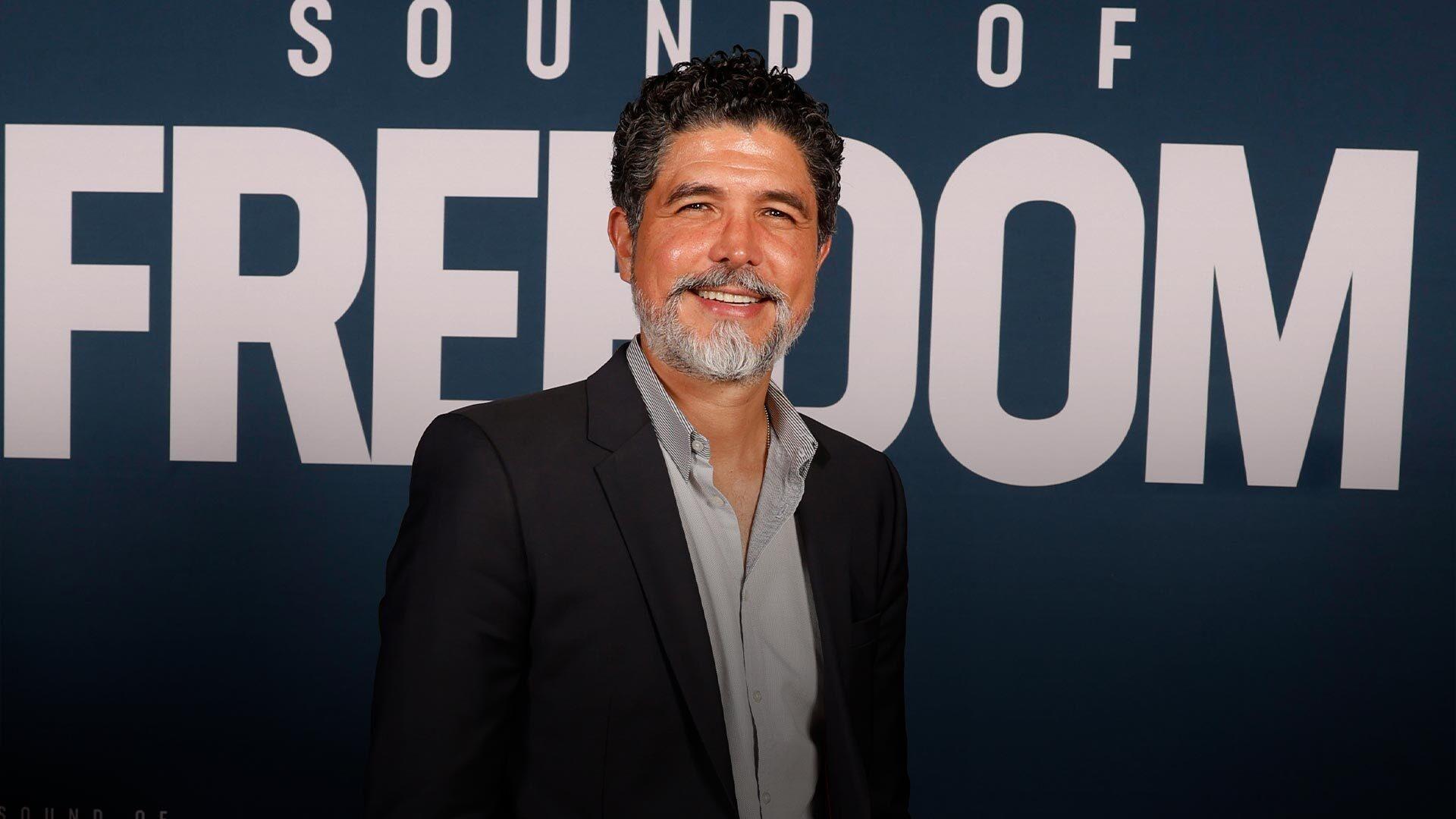“Sound Of Freedom” Director Alejandro Monteverde On QAnon, Critics And Going Global

“Angel Studios understood that the best billboard for this film was going to be word of mouth. I became a little pain for them…We agree to disagree.”
Alejandro Monteverde should be thrilled, having co-written and directed the sleeper hit of the summer: Sound of Freedom. Eight years in the making, on a budget of $14.5 million, the indie film has racked up than $167 million in domestic ticket sales since its July 4th release. That box office gross puts it on par with franchise offerings like Disney’s Indiana Jones and the Dial of Destiny and the latest installment of Mission: Impossible.
And yet it’s easy to understand why Monteverde might feel frustrated. Much of the success of his film—a crime thriller based on former Homeland Security agent Tim Ballard’s controversial account of his rogue quest to rescue children from sex traffickers—has been attributed to the marketing tactics of Utah distributor Angel Studios and passionate support from right-wing fans, including Steve Bannon and former President Donald Trump.
Jim Caviezel, the actor who plays Ballard, has voiced support for QAnon-fueled conspiracies, including baseless claims that prominent Democrats, Hollywood figures and other “global elites” are involved in a satanic global pedophile ring harvesting the hormone “adenochrome” from abducted children in a quest for eternal youth. (For a fuller explanation of the bizarre theory, click here.) Ballard, meanwhile, recently complained on Instagram about “the godless leftist media” running interference for human traffickers (not to mention posting meh ratings on Rotten Tomatoes that are at odds with almost-perfect audience scores.)
The polarizing reaction has arguably turned Sound of Freedom into a movement as much as a film, with Caviezel and Angel Studios calling on supporters to “pay it forward” by buying free tickets for future viewers.
While Monteverde is clearly pleased by the surprise success of his movie, which was finished in early 2018, bought by Fox and then shelved after it became part of Disney. As Sound of Freedom is set to launch internationally, I sat down with the director to discuss both his intent and the fallout from the movie.
“I had kept my distance because I’m not a politician,” says Monteverde, who says he never anticipated that his movie would be labeled faith-based until he met Angel Studios CEO Neal Harmon and his brothers in an effort to secure new distribution for the film. “I was blown away by them … and that’s where this journey began.”
The studio’s marketing plan deployed a very deliberate faith-based marketing plan that used crowdfunding to raise $5 million—a strategy that backfired somewhat when one of its 6,678 funders was arrested for his alleged role in a child kidnapping—as well as provocative interviews with sympathetic media and the “pay it forward” campaign.
“Angel Studios understood that the best billboard for this film was going to be word of mouth,” he says, with the faith-based audience as its target. When the rhetoric became too much, he adds, “I became a little pain for them…we agree to disagree.”
With Hollywood studios looking for lessons in the success of Sound of Freedom, and many now curious as to how this strategy will play abroad, Monteverde’s hesitation only goes so far. “If I’m a distributor in France and this movie made close to $200 million in the US, I will for sure be calling distributors to say, “Okay, what do you guys do?”


